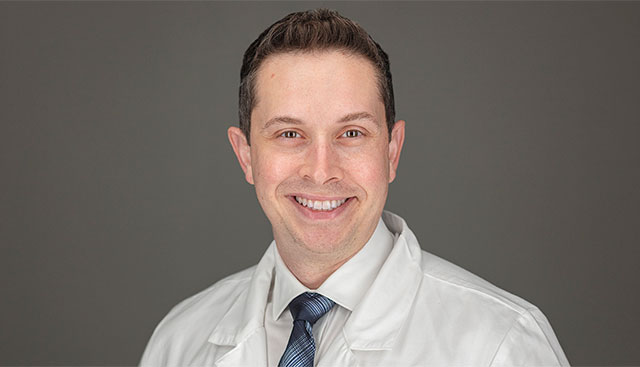
Q&A: Dr. Mok Shares His Role as an Advanced Endoscopist
Shaffer Mok, MD, a gastroenterologist in the Gastrointestinal Oncology Program, brings novel therapies and improved options for the treatment of gastrointestinal cancers. Dr. Mok's clinical interests include therapeutic endoscopic ultrasound / ERCP and alternative therapies for GI cancers. Additionally, Dr. Mok specializes in endoscopic submucosal dissection and full-thickness resection for the treatment of foregut malignancy. His research includes endoscopic ultrasound-guided therapeutics and optimizing endoscopic tissue acquisition. Additionally, Dr. Mok is co-director of the Pancreas Interception Center at Moffit, which will open its doors in 2023.
We sat down with Dr. Mok to hear about his role as an advanced endoscopist and what he plans for the future of pancreatic cancer care at Moffitt Cancer Center.
1. How does a standard endoscopy differ from an advanced endoscopy? What types of cancer diagnosis require an advanced endoscopy to be done?
Interventional or advanced endoscopy is a rapidly expanding diagnostic and therapeutic field. More recent technologic advances have allowed us to expand our therapeutic potential outside of the inner workings of the GI tract. We now have access to third-space endoscopy which involves the removal of some early esophagus, stomach and colon cancers using small knives that work through the scope.
Additionally, we are intimately involved in bile duct and pancreas cancer, usually performing initial biopsies but also performing palliative procedures to improve blockages in the bowel and bile tubes.
2. Can you elaborate on your dual training as a gastroenterologist and advanced endoscopist and how does that distinguish your role as a physician?
I completed a master's degree in anatomy, then four years of medical school, three years of internal medicine residency and three years of GI training, where I started doing basic advanced procedures. I then did an extra year of advanced/interventional endoscopy.
3. Your clinical interests include the use of alternative therapies and holistic medicine; can you share some of these approaches and recommendations you give your patients in managing their cancer symptoms/care?
I am also boarded in functional medicine, which I completed earlier this year to offer holistic therapies to my patients. I pursued this training because I had so many patients with cancer/precancerous lesions, who were looking for ways to improve their outcomes or prevent cancer.
Functional medicine involves diet, lifestyle, movement and wellness activities that can have a tremendous impact on cancer risk and outcomes. Looking at the patient from a whole-body systems-based approach and allowing them to change their outcomes takes the patient from a place of feeling helpless to being back in control.
4. Can you explain the Pancreas Interception Center and the focus of the clinic?
The Pancreas Interception Center (PIC) is a multidisciplinary novel clinic that uses advanced medical technology and a whole-patient approach to mitigate the risk of pancreatic cancer. We are looking for individuals with pancreatic cysts, diabetes/fatty pancreases, chronic pancreatitis and a family history of pancreatic cancer that are motivated to change their outcomes.
5. What do you envision for the future of gastrointestinal oncology at Moffitt?
Our role as GI doctors is rapidly expanding in cancer care here at Moffitt. We are not just offering diagnostic testing, but therapeutic procedures to remove cancer. I suspect these possibilities will continue to expand as technological advances allow us to extend these capabilities.
If you’d like to refer a patient to Moffitt Cancer Center, complete our online form or contact a physician liaison for assistance. As part of our efforts to shorten referral times as much as possible, online referrals are typically responded to within 24 - 48 hours.
